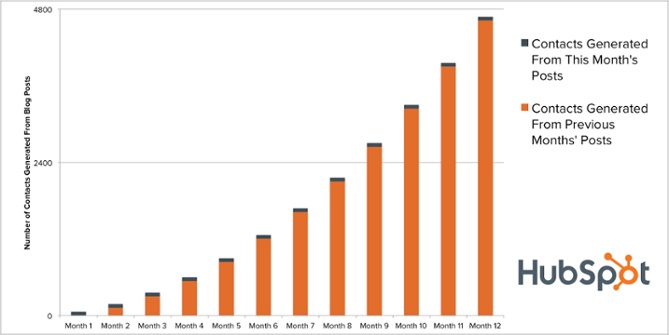Why Businesses Need a Content Marketing Strategy
Those scenarios might have sounded like a lot of work to you, especially when considered alongside marketing programs that provide more immediate gratification -- like list purchasing, PPC, or trade show marketing that deliver names and email addresses in mere minutes. Often, content marketing is used when businesses realize those programs are either ineffective, too expensive, not scalable, or all of the above. Here's what I mean, using the "infographic generator" example above for demonstrations.
Let's say you're using PPC as your primary means of generating leads for your business. You need more leads, and decide to bid on the term "infographic generator" for $2 a click. At the end of your month-long campaign, you generated 1,000 leads and spent $10,000. Not bad. But what about next month? You have to spend $10,000 again. And again. And again. That is, if you want the leads to keep coming. In other words, when you turn the faucet of money off, leads stop coming out. The same concept applies with list purchasing, tradeshow marketing -- anything where you don't own the property from which leads are generated. Now let's contrast that experience against, say, blogging.
You write a blog post about your infographic generator, and included a link to the tool in the post so people can try it for themselves. Let's say the visitor-to-lead conversion rate is the same on this blog post as it was in your PPC campaign -- 2%. That means if 100 people read that blog post in your first month, you'd get two leads from it. But your work is done now. And over time, that one blog post you wrote years ago will continue to generate leads over, and over, and over, every single month. And not just that blog post -- every blog post you write will do the same.
